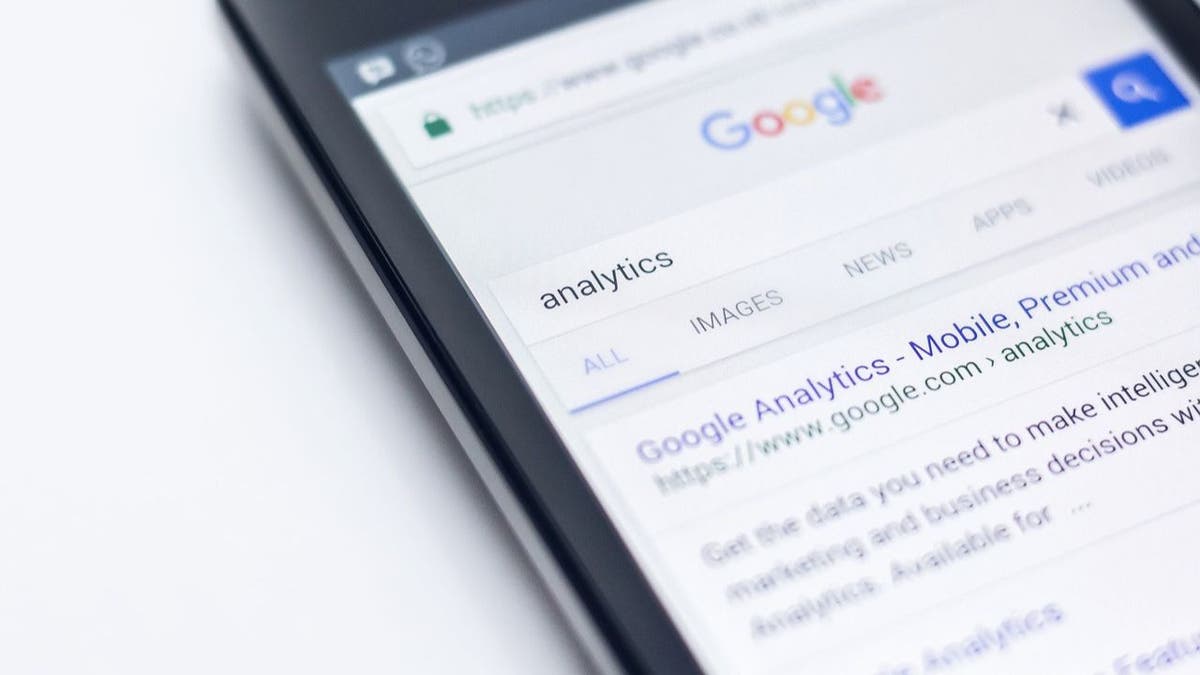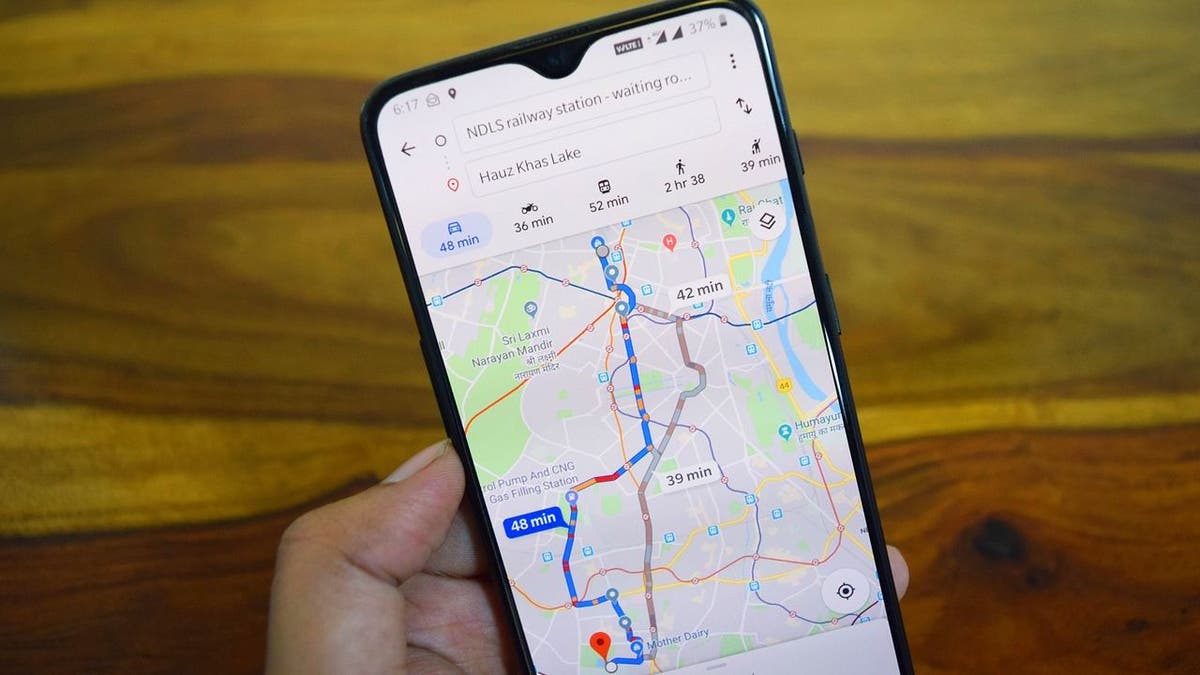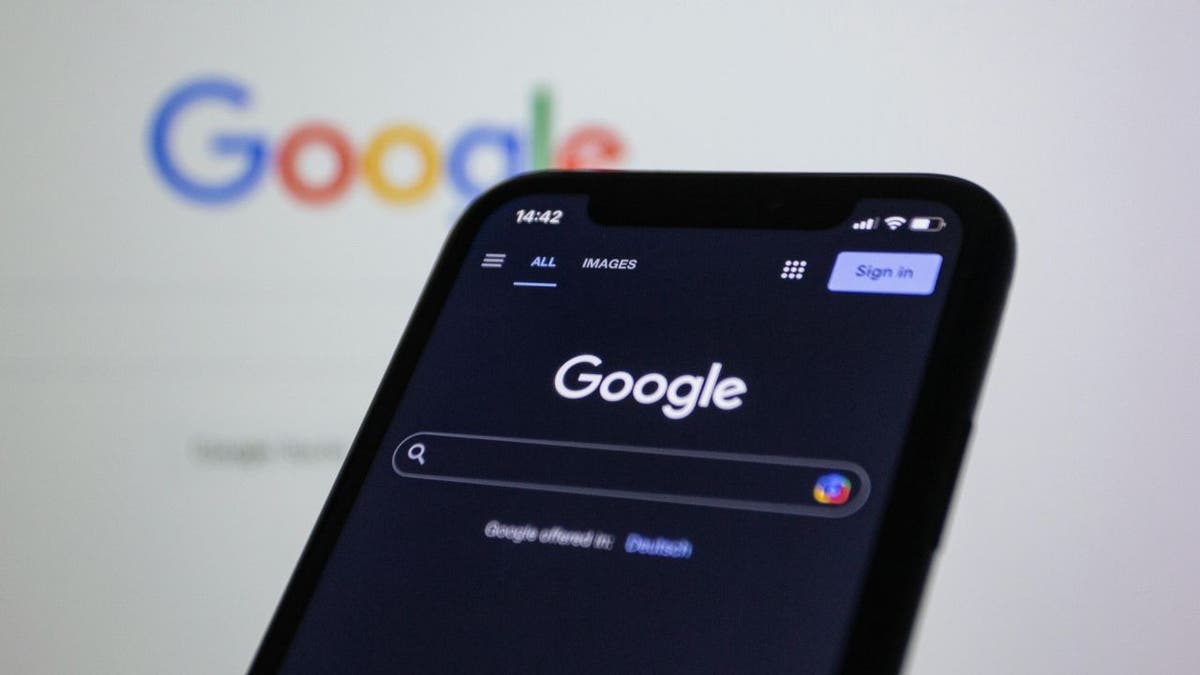Call it a mistake, an accident or recklessness, reports from Google employees suggest a pattern of serious privacy breaches are emerging from the tech giant.
In an age where data is as precious as gold, even a company as large as Google is not immune to the pitfalls of dealing with the vast repository of personal information flowing through its systems.
Microscope observation Google search (Kurt “Cyberguy” Knutson)
Scope of the incident
Six years of internal Google reports uncovered by 404 Media reveal a disturbing series of privacy breaches that affect everything from children’s voice data to the home addresses of unsuspecting ride-share users.
Get security alerts, expert tips – Sign up for KURT’s newsletter – The Cyber Guy Report here
These breaches include YouTube’s ability to make recommendations based on users’ deleted viewing history. While these issues have not been widely publicized or had a major impact, they highlight the complex challenges facing tech giants.

Google Search on Macbook Pro (Kurt “Cyberguy” Knutson)
Beware of this McAfee Google Chrome ad scam
Google’s privacy blunders exposed
The internal database, which has never been publicly released, records incidents ranging from minor mishaps, such as accidentally sending an email containing personal information, to major security flaws, including major data leaks and possible attacks on Google offices. The company’s system allows employees to rank these issues by severity, with the most severe being designated with the term “P0.”

Google Analytics displayed on a tablet (Kurt “Cyberguy” Knutson)
How Google data can make you a suspect in a crime you didn’t commit
Google Street View fails
One notable incident in 2016 highlights the complexities of managing automated data collection: Google Street View, known for providing panoramic views of streets around the world, accidentally transcribed and stored license plate numbers after its text-recognition algorithm mistook them for regular text.
“As a result, a database of geo-located license plate numbers and license plate number fragments was mistakenly included in our database of objects detected by Street View,” a Google employee said. The company asserted that the error was accidental and that the data has since been removed.
What is Artificial Intelligence (AI)?

Google Maps (Kurt “Cyberguy” Knutson)
Google finally admits data collection in Chrome’s incognito mode
Socratic.org Data Release
Another significant breach was the exposure of email addresses of over one million users of Socratic.org, an educational platform that was acquired by Google.
The breach allowed sensitive data such as geolocation and IP addresses to be accessible through the platform’s page sources and remained undetected for over a year, affecting a large number of users, including children.

Google search displayed on a laptop (Kurt “Cyberguy” Knutson)
Google’s response to CyberGuy
These problems became apparent when 404 MediaIts authenticity was later confirmed by Google itself. In response to the discovery, a Google spokesperson said, “At Google, employees can immediately report potential product issues for review by the relevant team. Once an employee submits a report, we suggest a priority level for reviewers.”
Click here to get FOX Business on the go
It added that “the reports obtained by 404 are examples of these flags that are over six years old; all were reviewed and resolved at the time. In some cases, these employee flags may not have been issues at all, or they may have been issues that employees discovered with third-party services.”

Google search on smartphone (Kurt “Cyberguy” Knutson)
Proactive measures to be taken in response to Google’s data issue
In an age where digital privacy is under constant threat, especially in light of recent revelations about privacy breaches at tech giants like Google, it’s more important than ever to take proactive steps to protect your personal information.
1. Create a strong password: Use complex passwords, change them regularly, and avoid using the same password on multiple sites. Password Manager Generate and store complex passwords.
2. Enable two-factor authentication. As far as possible, Two-factor authentication Add an extra layer of security to your account.
3. Beware of phishing scams: Learn how to identify Suspicious emails and messages The best way to protect yourself from clicking on malicious links that install malware that may try to steal your personal information is to install antivirus protection on all your devices, which will also warn you about phishing emails and ransomware scams. We’ve handpicked the winners of the best antivirus protection of 2024 for Windows, Mac, Android and iOS devices.
4. Use a secure network: Avoid using Public Wi-Fi For sensitive transactions, Virtual Private Network For added security. A VPN helps protect you from being tracked and located by the websites you visit. Many sites can read your IP address and, depending on your privacy settings, may show you the city you’re communicating from. A VPN disguises your IP address to show a different location. For the best VPN software, check out my expert reviews of the best VPNs for browsing the web privately on your phone. Windows, Mac, Android and iOS devices.
5. Invest in a data deletion service: No service promises to remove all your data from the Internet, but if you want to automate the process of continually monitoring and deleting leaked information from hundreds of sites over a long period of time, using a removal service can be a convenient option. Check out my recommended data deletion services here.
6. Manage your social media settings: your Social media Keep your accounts private and be careful about the information you share online.
7. Update your device. Store your software and devices Has been updated Protects against the latest security threats.
8. Check permissions: Regularly review the permissions you’ve granted to apps and websites and revoke any that you no longer need.
Important points about the cart
These stories of accidental data collection and privacy leaks are cautionary tales about the potential dangers lurking in the mountains of data collected and processed by technology companies today. Big tech companies’ true mission is to take as much from us as they want in order to make money. They need to take more proactive steps to protect personal privacy and security. As Google navigates these rough waters, the world is watching, and is once again reminded of the need for rigorous data protection measures in the digital age.
Click here to get the FOX News app
Given Google’s recent privacy breaches, what steps should the company take to better protect user data and rebuild trust with its users? Cyberguy.com/Contact Us.
If you want to hear more of my tech tips and security alerts, subscribe to the free CyberGuy Report newsletter at the link below. Cyberguy.com/Newsletter.
Have a question for Kurt or tell us the story you’d like to see featured?.
Follow Kurt on his social channels:
Answers to the CyberGuy’s most frequently asked questions:
Copyright 2024 CyberGuy.com. All Rights Reserved.


